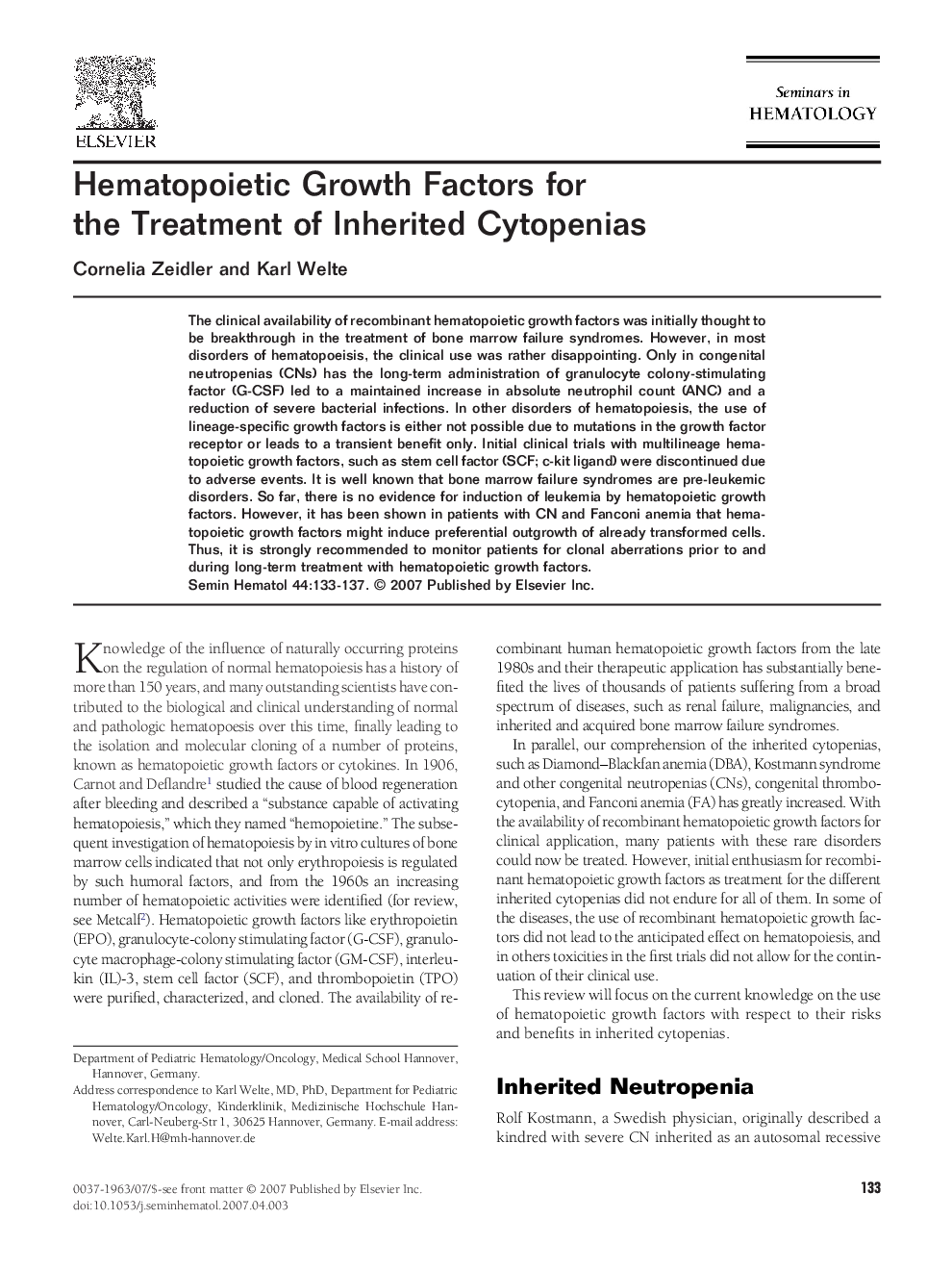| Article ID | Journal | Published Year | Pages | File Type |
|---|---|---|---|---|
| 3334202 | Seminars in Hematology | 2007 | 5 Pages |
Abstract
The clinical availability of recombinant hematopoietic growth factors was initially thought to be breakthrough in the treatment of bone marrow failure syndromes. However, in most disorders of hematopoeisis, the clinical use was rather disappointing. Only in congenital neutropenias (CNs) has the long-term administration of granulocyte colony-stimulating factor (G-CSF) led to a maintained increase in absolute neutrophil count (ANC) and a reduction of severe bacterial infections. In other disorders of hematopoiesis, the use of lineage-specific growth factors is either not possible due to mutations in the growth factor receptor or leads to a transient benefit only. Initial clinical trials with multilineage hematopoietic growth factors, such as stem cell factor (SCF; c-kit ligand) were discontinued due to adverse events. It is well known that bone marrow failure syndromes are pre-leukemic disorders. So far, there is no evidence for induction of leukemia by hematopoietic growth factors. However, it has been shown in patients with CN and Fanconi anemia that hematopoietic growth factors might induce preferential outgrowth of already transformed cells. Thus, it is strongly recommended to monitor patients for clonal aberrations prior to and during long-term treatment with hematopoietic growth factors.
Related Topics
Health Sciences
Medicine and Dentistry
Hematology
Authors
Cornelia Zeidler, Karl Welte,
